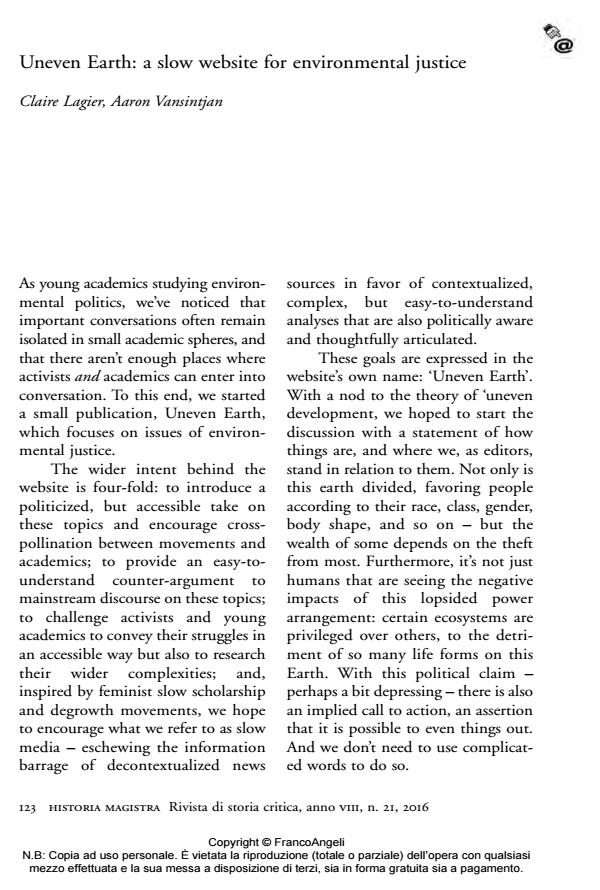Uneven Earth: a slow website for environmental justice
Journal title HISTORIA MAGISTRA
Author/s Claire Lagier
Publishing Year 2016 Issue 2016/21
Language English Pages 3 P. 123-125 File size 55 KB
DOI 10.3280/HM2016-021010
DOI is like a bar code for intellectual property: to have more infomation
click here
Below, you can see the article first page
If you want to buy this article in PDF format, you can do it, following the instructions to buy download credits

FrancoAngeli is member of Publishers International Linking Association, Inc (PILA), a not-for-profit association which run the CrossRef service enabling links to and from online scholarly content.
In 2003 Jacqueline Winspear’s first novel was published in the usa, starting a succesfull series of historical fiction books featuring Maisie Dobbs, a young woman starting a career as a private investigator. Set in early Thirties London, Winspear’s books are not only an example of historical mistery, but can also be considered a result of a long research process made by the author; through all the novels a strong sense of memory and loss connected to the aftermath of Great War can be found. The main character was a nurse during the war, and the awful experiences she dealt with in that period are still present on her mind, as are on all English people’s minds. In every book Maisie has to solve an investigation case that always bring her to face the physical and psychological consequences of war. The aim of the article is to analyze some of the various topics that run under the novels’ main plots, such as the sense of disenchantment felt by the majority of English society or the change in women’s condition.
Keywords: Great War, Historical Fiction, Collective Memory, Disenchantment, Lost.
Claire Lagier, Uneven Earth: a slow website for environmental justice in "HISTORIA MAGISTRA" 21/2016, pp 123-125, DOI: 10.3280/HM2016-021010